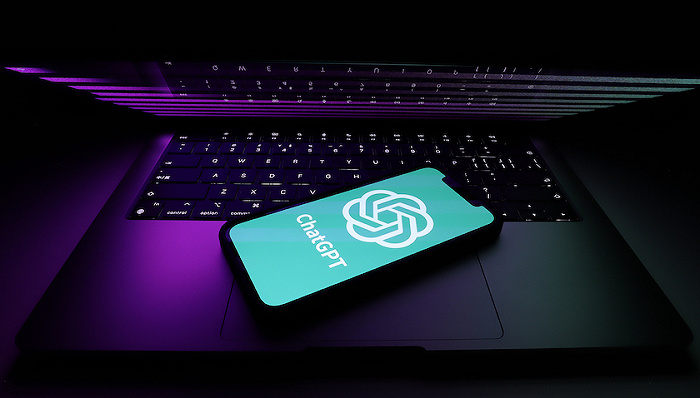Since its release in November last year, ChatGPT launched by OpenAI, an American artificial intelligence research laboratory, has been used by people to write cover letters, make children’s books, and even some students use it to cheat.

This chat robot may be more powerful than we thought. Google found that, in theory, ChatGPT would be hired as an entry-level programmer if interviewed by the company.
Amazon employees who have tested ChatGPT also said that it is “very good” in answering customer support questions, “quite good” in making training documents and “very strong” in answering questions about company strategy.
However, ChatGPT users also found that the robot still generates error messages, answers programming questions incorrectly and makes some basic math mistakes.
Although a study by Oxford University as early as 2013 suggested that 47% of jobs in the United States may be eliminated by artificial intelligence or automation in the next 20 years, it seems that this prediction is not correct now.
Anu Madgavkar, a partner of McKinsey Global Institute, said that this is because human judgment needs to be applied to these technologies to avoid mistakes and prejudice. “We must regard these things as tools to improve productivity, not completely replace our work.”
Professionals believe that positions such as programmers, media workers and financial analysts are at the highest risk of being replaced by artificial intelligence.
Technical work (computer programmer, software engineer, data analyst)
Coding and computer programming are very popular skills at present, but ChatGPT and similar artificial intelligence tools may fill some gaps in them in the near future.
Madgavkar pointed out that technical jobs such as software and network developers, computer programmers and data scientists are “very suitable” for artificial intelligence technology to “replace their more jobs” because artificial intelligence like ChatGPT is good at processing numbers in a relatively accurate way.
Mark Muro, a senior researcher at the Brookings Institution who studies the impact of artificial intelligence on the American labor force, said that advanced technologies like ChatGPT can generate code faster than humans, which means fewer employees can complete the work. “What used to be done by software development teams may only need some of them now.”
However, Oded Netzer, a professor at Columbia Business School, believes that artificial intelligence will help programmers, not replace them. “As far as work is concerned, I think this is mainly an enhancement, not a comprehensive replacement for work. Coding and programming are a good example. It can actually write code very well. “
Media work (advertising, content creation, technical writing, news)
Madgavkar believes that all media work, including advertising, technical writing, news reporting and any role involving content creation, may be influenced by ChatGPT and similar forms of artificial intelligence, because artificial intelligence can read, write and understand text-based data well.
Paul Krugman, the Nobel laureate in economics, said in The New York Times’s column that ChatGPT may be able to accomplish tasks such as reporting and writing “more effectively than human beings”.
The American media industry began to try to produce content with artificial intelligence many years ago. CNET, a science and technology news website, used artificial intelligence tools such as ChatGPT to write dozens of articles, although publishers later had to publish some corrections. BuzzFeed announced that it will use the technology of ChatGPT manufacturers to produce new forms of content.
But Madgavkar said that most of the work done by content creators could not be automated. “Each of these occupations involves a great deal of human judgment.”
Financial position (financial analyst, personal financial consultant)
Muro, a researcher at the Brookings Institution, believes that artificial intelligence will also affect these jobs, just like market research analysts, financial analysts, personal financial consultants and other personal financial management jobs that need to deal with a large amount of digital data.
“Artificial intelligence can identify market trends, find out which investments in the portfolio perform better or worse, and use various other forms of data,” Muro said. These analysts make a lot of money, but some of their work can be automated.
Other positions that may be replaced by artificial intelligence tools such as ChatGPT include: paralegal, market research analyst, teacher, trader, graphic designer, accountant and customer service agent.
ChatGPT’s answer
Interestingly, ChatGPT gave experts a similar answer to this question.
When asked what jobs you think ChatGPT will replace, it euphemistically replied, “I can’t predict the future”, but “due to technology like mine, some tasks currently performed by people may be automated or simplified.”
These include: data entry and processing, customer service and support roles (such as answering frequently asked questions), translation tasks and report writing, and content generation.
ChatGPT also defends itself. It should be noted that although some tasks may become automated, technologies like mine can also help and support human workers, improve their productivity and efficiency, and have a “net positive” impact on the job market.
However, if ChatGPT really replaces your job, it won’t have any guilt or worry about it. “I have no emotions or personal feelings,” said the robot.
Which jobs are the least likely to be replaced?
Andy Wadsworth, director of The Bridge, an IT recruitment company, believes that services like ChatGPT are the first window for the public to enter Pandora’s Box, which may become Industrial Revolution 3.0, with winners and losers.
“There is no doubt that some jobs will be replaced by artificial intelligence, but those companies and individuals who learn to use generative artificial intelligence and adapt to this new world will be winners,” wadsworth said.
The most difficult jobs to be replaced will be those roles that require face-to-face interaction and physical skills, and these artificial intelligence cannot be replaced. For example, craftsmen such as plasterers, electricians and mechanics, and service personnel such as barbers, cooks, doctors and nurses will continue to rely on human understanding and ability to complete their tasks.